
The Adventure of the Dutch Diamonds
Part II
The dogcart delivered us from Baker Street and into Bloomsbury, as London around us began to wind down for the evening. The paper boys and street hawkers packed their day’s wares away and the gas lamps on each street corner winked to life while a menagerie of lighted windows cast their vibrancy upon the street below. As we travelled, Holmes worked to coax more details from Lestrade.
“The victim’s name is Underhill, Frederick Underhill. He was a Professor of Chemistry at the University of London, lived in University housing on Gower Street for most of his adult life. He’s a widower of some ten years, and a man of most regular habits, this according to the neighbour that found him. She had not seen him for two days, and went so far to check up on him at his office. When he was there neither, she returned and let herself in with a spare key provided by his secretary, to find him in his sorry state, dashed by chandelier,” Lestrade explained.
I rubbed the top of my head and tried not to think about the glass and metal of a chandelier shattering across it, tearing into my flesh. I had seen horrible things done to men’s heads and faces while on campaign, marred by shrapnel or worse, but here the juxtaposition of gore and domesticity created a pit in my stomach. I consoled myself with the thought that It was surely a rarer event than even being struck by lightning, to travel beneath such an ornament in the moment it should break.
“Had this neighbour anything further to say about the premises? Strange noises coming from Underhill’s domicile? Leaks in her own establishment, perhaps?” Holmes asked as the dogcart came to a halt.
This time Lestrade detected the jab, “I was most thorough in my investigation of the premises, Holmes. This wetness exists all about the victim. His clothes are far from soaked, but…” Lestrade struggled, “you will see these mysterious wet markings for yourself on our arrival, and you will conclude they are as queer as I say.” He threw open the cart’s door and gestured to our destination. Gower Street’s apartments were a dark stack of brick opposite to the University’s sweeping campus and flourishing grounds, nestling in the shade of the great institution. The apartments had surely housed many luminaries and brilliant students across its time, yet they seemed to me a dull, black mark on a street of innovation.
“But not so mysterious that the officer in charge finds it worthy of any examination? Indeed, who
is this inspector you allude to?” Holmes teased. Before Lestrade could answer, 185 Gower Street’s warped, green door swung open, and a dark haired policeman of sallow complexion emerged, joining the handful of officers that provided perimeter guard outside. I recognized him from his height, two heads shorter than Lestrade, and the thickly soled boots he wore to attempt to compensate for the difference: he was Inspector Gregson. Holmes smiled devilishly the moment he too recognized him.
“Lestrade, you have buried the lede,” Holmes said, emerging from the dogcart and marching towards Inspector Gregson. Lestrade and Gregson’s rivalry was often a treat to Holmes. He loved nothing more than to toss them scraps and watch them snarl and wrestle like wolves for it, at least when their fighting did not run rampant over Holmes’s crime scene.
“Lestrade, you bungler,” Gregson groaned as we all approached the home, “you really went to the trouble of bringing Mr. Holmes around? It is hardly a matter worthy of his attention.”
“You mean worthy of yours,” Lestrade countered, “you are just trying to avoid the paperwork and cut out for the evening, without conducting the comprehensive examination the professor deserves.”
“Gentlemen, let us remain civil,” I pleaded, ”we shall simply take a brief look around to attempt to determine which theory, accident or no, is better supported by the facts. Let us spare our vitriol for the criminal.”
“If indeed there is one,” Gregson snorted. “The victim’s name was--”
Holmes waved him off, “Lestrade has already furnished us with the most basic elements of the case. If you would be so kind as to show us inside?”
Gregson compressed his already small features with a scowl, and led us past the front door and inside. The door whined as it opened, and Holmes stopped at it momentarily, trying it at its hinge and then gazing pointedly up and down the road.
“Holmes, please, we really must get a move on. My men have been run ragged this week…” Gregson said, as Holmes evidently busied himself with trivialities.
“Gower Street is University housing. Why then should the door be in such a state of disrepair?” Holmes said.
I exchanged a glance with each inspector, who in turn looked between Holmes and I for some answer. “I do not follow your line of inquiry,” I said.
“London University employs its own small staff of carpenters, contractors, and assorted tradesmen for the maintenance of its grounds and its dormitory facilities. It is the preference of these men to complete as many tasks and updates in a single area as possible before moving onto the next, to increase their efficiency. For instance, many tradesmen will update the entryways of several homes at once, even an entire neighbourhood. Yet this door,” Holmes rapped his knuckles upon it, “is the
most warped and damaged on the street.”
A look at the door opposite of 185 Gower’s confirmed it, finding the other door bright green and lacquered and anything but the sickly, off-angled slab that hung from 185’s hinges. The pattern repeated at other entryways outside, and turning back inward, we found the interior doors to be of similar specification.
“I allow it is odd, but I struggle to find it ‘suggestive’, as you so often say.” Lestrade said.
“Its relevance shall be borne out by the rest of the facts. At present, it is only another data point. Pray, let us continue.” Holmes said.
We were brought from the foyer into Professor Underhill’s main room, populated by another handful of uniforms. It was a circular, carpeted space that fed the apartments various other rooms on three sides. The room was dominated by a straight staircase that connected to the second floor, and ran down with dark crimson stains in a bloody well where the wood frame met soaked carpet. A man lay on the stair, spread as though he were starfish, with the remnants of a chandelier wrapped about his head as though a crude headdress. Nausea rose in my stomach and I swallowed it down, looking from the corpse to my dear friend.
Holmes gave the body a once over, and then turned to other areas of the house. He gestured at it, clearly having already derived what he required from it, to find his attention being rapidly pulled by the rest of the home.
“Watson, if you would be so good as to examine this individual?”
“We've already had a doctor ‘round, Mr. Holmes,” Gregson said, “a doctor from the University by the name of Zachariah Pendleton. By his judgement there was nothing unusual. He said Underhill has been dead for almost two days.”
“All the same, I would appreciate it if my companion could make such a determination for himself.” Holmes did not turn to address Gregson, instead stooping in the leftmost room and sticking two fingers into the ashes of the home’s inactive fireplace. I knew no further instruction would come from him as he immersed himself in the home and its features, questing for those which did not agree with the evident reality.
“Give the doctor some room,” Lestrade ordered, ushering all other officers beside himself and Gregson from the immediate vicinity.
Any disgust I may have felt melted away as I approached the body, the inner physician enabling me to look past the gore and viscera and make objective judgement on the corpse. The Dutch chandeliers' crystal petals had exploded over the body’s head and upon the ground, destroying his skull and the case of the brain within, leaving the broken chain to dangle above. Shards of shattered crystal remained hidden in the thick carpeting and poking from the harsh pink of Underhill’s exposed grey matter, winking in the flickering gaslight like diamonds.
Professor Underhill’s muscles had relaxed before we arrived, leaving the corpse’s midriff soiled in its own foul-smelling fluids, while its wrists and ankles lay upon damp patches of unknown origin. I laid my hands on the body, finding firstly that it had been thoroughly taken by the chill of death, the temperature of a man who had indeed been deceased for at least thirty six hours. Gently, I tried the left arm to test for the characteristic stiffness of rigour mortis, to find the limb quite pliable, having fully undergone secondary flaccidity, further supporting the notion that the corpse had been left for so long. Yet, as I tried the limb and felt those rare notes of stiffness that remained, I could not help but note just
how cold the man was. I placed my hand upon his forehead and frowned deeply.
“Inspector Gregson? I can construct how your man arrived at his judgement,” I said.
“Excellent! You see, Sherlock?” Gregson smiled, “Scotland Yard gets it done.”
“However, I must advise there are several curious factors. Firstly, I must inform you that the
algor mortis is the most useful factor to any physician in determining time of death, as the body’s temperature decreases at a consistent rate post mortem. But this body is quite frigid.”
“Of course he is. The man has been dead for over a day and a half.”
“It appeared that way to me on the onset. Professor Underhill is actually a few degrees
colder than his surroundings. The body does not drop through the whole of the temperature scale on death, but rather approaches equilibrium with its surroundings. In fact, even if a body has been made cold, as is the case in many of Scotland Yard’s morgue facilities, when left out in the warmth it shall once again return to that equilibrium. But this body, despite the supposed time of death, somehow exists
below that equilibrium. Someone has kept the body cold, and kept it in this fashion recently. The unnatural cold even makes the time of death uncertain, as the body is known to stiffen over the course of a dozen hours and unstiffen again after approximately two dozen. Based on the stiffness of Underhill’s musculature alone, while it is conceivable he passed thirty six hours ago, it is just as arguable that it was as recent as one hour ago. A further factor of concern is the stench, or lack thereof. A body left to decay produces gases and chemicals of a distinctive olfactory quality. It is not unheard of for amateur physicians to mistake the odour of post mortem excretions for that of decay. My experience informs me this stench is not that particular rancidity of death, and forces me to conclude that the Professor’s passing was much more recent than your investigator indicated.”
“I must concur with Watson,” Sherlock said. He wiped ash from his fingers with his handkerchief, and returned from the home’s other rooms to stand beside me. “It is typical of me to give into the urges of the dramatist within and forestall any communication of my conclusions until our cases have reached their total end, such that I may lay out the facts and their most interesting facets in their entirety. However, in this case, I must assure you gentlemen that there was no accident.”
“I assure you, Mister Holmes, that an accident is most plausible. The Professor has an ice box and a wet bar in the lounge. He could easily have been enjoying a cold drink that dropped his body’s temperature, perhaps even after death,” Gregson suggested.
“He would need to have enjoyed a
massive quantity of drink to drop his temperature beyond his body’s natural heat,” Holmes said, allowing Gregson to continue to dig.
“Exactly. The man was so falling-down drunk, he disturbed the chandelier’s chain as he stumbled his way up the stairs,” Gregson declared.
“Gregson, you will join me in observing the position of Professor Underhill. You will perceive that his dashed head lays precisely below the broken chain of the chandelier. Inference? Underhill was already laying upon the ground. If he was standing, ascending or descending these stairs, you should expect the professor to stumble forward or backward as the deadly implement struck him and he fell to the floor, and thus break alignment with the chain,” Holmes said, maintaining his patience and kindness.
Gregson grinned like a cat that had caught its prize. “You only lend more credence to my theory, Mister Holmes. He could’ve easily been making a drunken crawl up his bedroom.” Now, my friend could not help but smile.
“I have, from time to time, enjoyed my drink to an excess, Inspector. But never have I crawled up the stairs
on my back.”
The simplicity of it was striking. These facts considered, it was clear to me that foul play was a certainty. Even if the man was on the floor of his own volition, surely the chandelier’s chain would not snap at this precise unlikely moment. Gregson was stock still, but his understated eyes bugged from his head.
“Indeed,” he growled, “I shall inform the men of this discrepancy.” He left the room, excusing himself further embarrassment.
“Then it’s murder,” I said. “But how should the murderer have come to destroy the chandelier chain at the right time? Indeed, how could he keep Profesor Underhill in place as he loosed the ornament? There are no obvious signs of restraint upon his wrists or legs, nor a sign of a boot planted to his chest to keep him down. It truly is as if he lay there of his own free will.”
“It is on that point Watson, I intend to conduct my own researches. It is our duty as detectives to act upon evidence and not upon conjecture. Yet, as I total the possibilities in my mind and discount those conventional notions not supported by the facts here stated, and at the terminus of my reasoning I am met with an outre result. In this enterprise, I believe the criminal has achieved his results through sophisticated application of
ice.”
Lestrade snorted, incredulous. “Are you implying that the perpetrator somehow sculpted restraints out of ice, and relied upon them to melt before the body was discovered? I grant you, it would go some way to explain the temperature of the body, and even the unique water stains about his extremities, but… It is far fetched, to say the least. Who has ever heard of such a thing?”
“I have encountered such a criminal before, if you would indulge my memory. During my travels abroad, I was engaged in a case in which it appeared that a Mister Akiyoshi Fujie had been murdered. In actual fact, the unfortunate fellow had committed suicide in an attempt to cast suspicion upon his manager. By utilising a pointed icicle as the instrument of his demise, the man had effectively engineered a disappearing murder weapon. He was given away by the great effort he had undertaken to ensure the weapon melted before he was discovered, most tellingly, the presence of a recently active fireplace in a blessedly warm August. What is of great concern here is the lack of such aides. The discovery of this crime was inevitable by the inquiry of Professor Underhill’s neighbours or colleagues, and the criminal has deployed no special strategies to hide his method, yett still effectively hidden it remains. I dare say we are dealing with something of a genius, as acquainted with the minute timings and properties of his frozen medium as a symphony violinist is with his catgut strings.”
“Is such a thing truly practical?” Lestrade asked. “Snapping off a thick icicle is one matter, but to bring such a quantity of carefully sculpted ice into the home?” Lestrade shook his head. “It is preposterous. I tell you, we have a Harrison ice machine at the Yard, and it is large enough to fill a room, and scarcely precise enough to even begin to perform an operation like this. He would have had to make and preserve each implement by hand, in the heat of summer, no less.”
“The science of refrigeration advances most rapidly. Many firms, both locally and abroad, are working to bring ice makers to the home. Who is to say that an enterprising scientist might not be ahead of the curve? It would not surprise me to learn the University might possess a similar device, likely of an improved specification than the one taxpayer funds provide to the police, which could be used to manufacture such equipment. Indeed, the criminal may be using an even more advanced means. But I shall refrain from speculation until I collect more data,” Holmes said. My friend turned to me and clapped his hand on my shoulder.
“Yet of foremost concern at present is the lateness of the hour. I am aware friend Watson has a pressing engagement on the morrow,” Holmes said. I checked the hour on Professor Underhill’s grandfather clock to find it as late as Holmes said. In just twelve hours, I would play host to a half dozen Gothamites. The anxiety of missing the brunch or failing to prepare for it were subsumed by my investigator’s resolve.
“I thank you for your consideration, but you will find me as available to you as ever. In a case as cold and mysterious as this, I should be thrilled to join you in the endeavour,” I said.
“It joys me to hear it, Watson! However, it is my suspicion Gower Street will not be home to much more suggestive information on this night. While further evidence in the home is possible, I should count us fortunate to have found what little we have. A criminal of this most extreme precision will not have left many more mistakes for us to pick up upon, if any at all. No, I believe your energies will be better spent with Mary and preparations for your guests, as the constabulary and I follow up what leading threads may remain in the home. I shall remain here and verify that nothing escapes our notice.”
I begrudgingly bid Inspector Lestrade farewell and trudged back out into the fading lights of drowsing London, through Gower Street’s creaking door. Holmes followed beside me, seeing me off to my dogcart home.
“In your estimation, Watson,” Holmes asked, eyes settling on me, “how would you rate the performance of the police’s chosen medical examiner?”
“You have known me to avoid criticism of the police, but he failed to denote the corpse's temperature, and made a gross over estimation of time of death. I may only characterise his conclusions as slipshod,” I answered carefully.
“I must agree,” Holmes said, satisfied, hailing a ride, “I recall Gregson provided us with his name, a Doctor Zachariah Pendleton. Does it stand out to your mind in any fashion?”
“Pendleton…” The name was distantly familiar to me. As a dogcart pulled around the corner and came to a stop from Holmes’ request, the memory came in a flash. “Yes! Pendleton! He has composed some few monographs on the treatment of chronic pain and disease. In fact, I recall Pendleton as being attached to the University’s Chemistry department, just as Underhill was…”
“Pendleton sounds to be a witness most worthy of interview, though we must not be hasty in following this course. We must establish a motive and thus a definitive direction for our investigations, such that we may approach Pendleton with superior information. At this juncture, the man could as easily be a potential victim as the killer himself. To narrow this field of possibility, I must entreat you to join me here at Gower Street tomorrow evening, at this hour,” Holmes said, a twinkle in his eye, as he helped me into the waiting cart, “our course must be to inquire into the life and researches of Professor Frederick Underhill, starting with his University offices.”
“If that is your judgement Holmes, then of course. I shall set out from home as soon as my guests allow,” I said. Holmes closed the door between us. The dogcart’s driver stirred the horses to action, and Holmes had one more thing to say through the cart’s window.
“And Watson?”
“Yes Holmes?”
“Don’t forget your gun.”
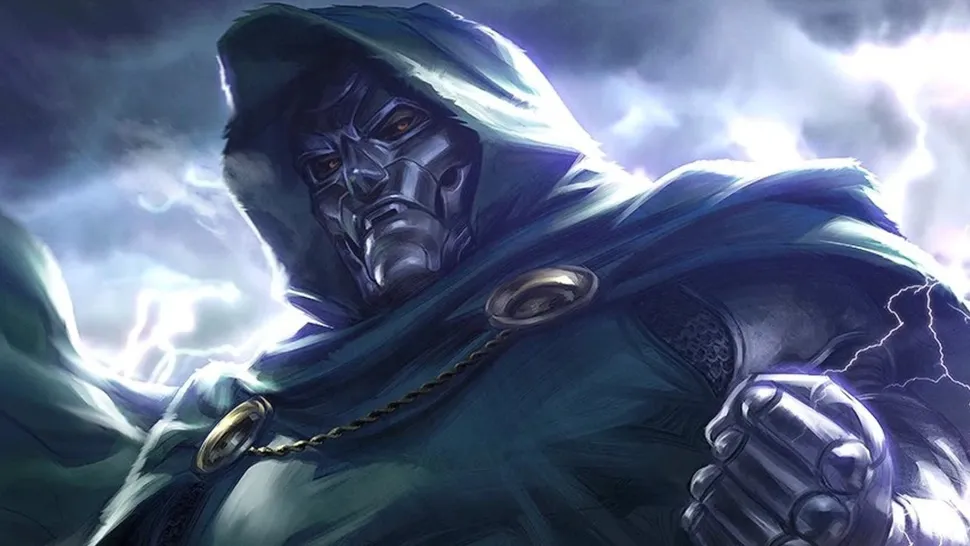
 2x Thank
2x Thank



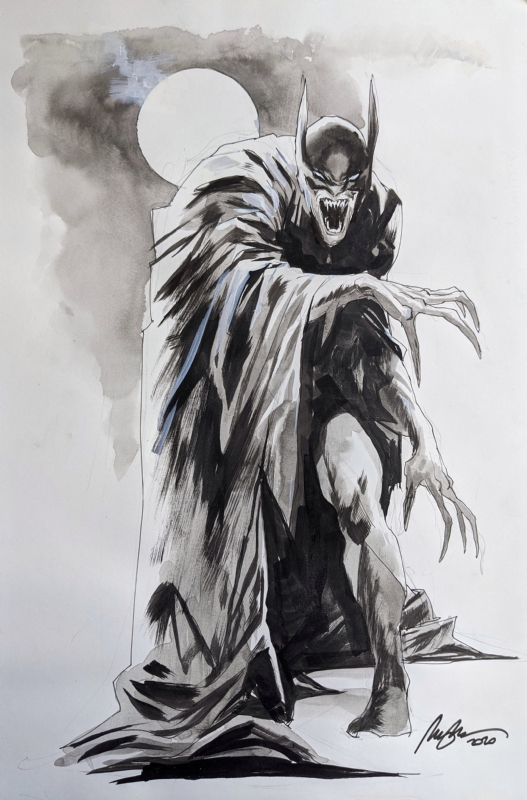



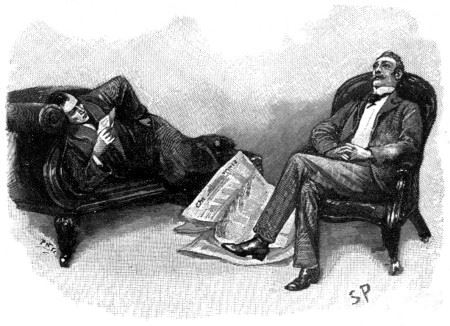

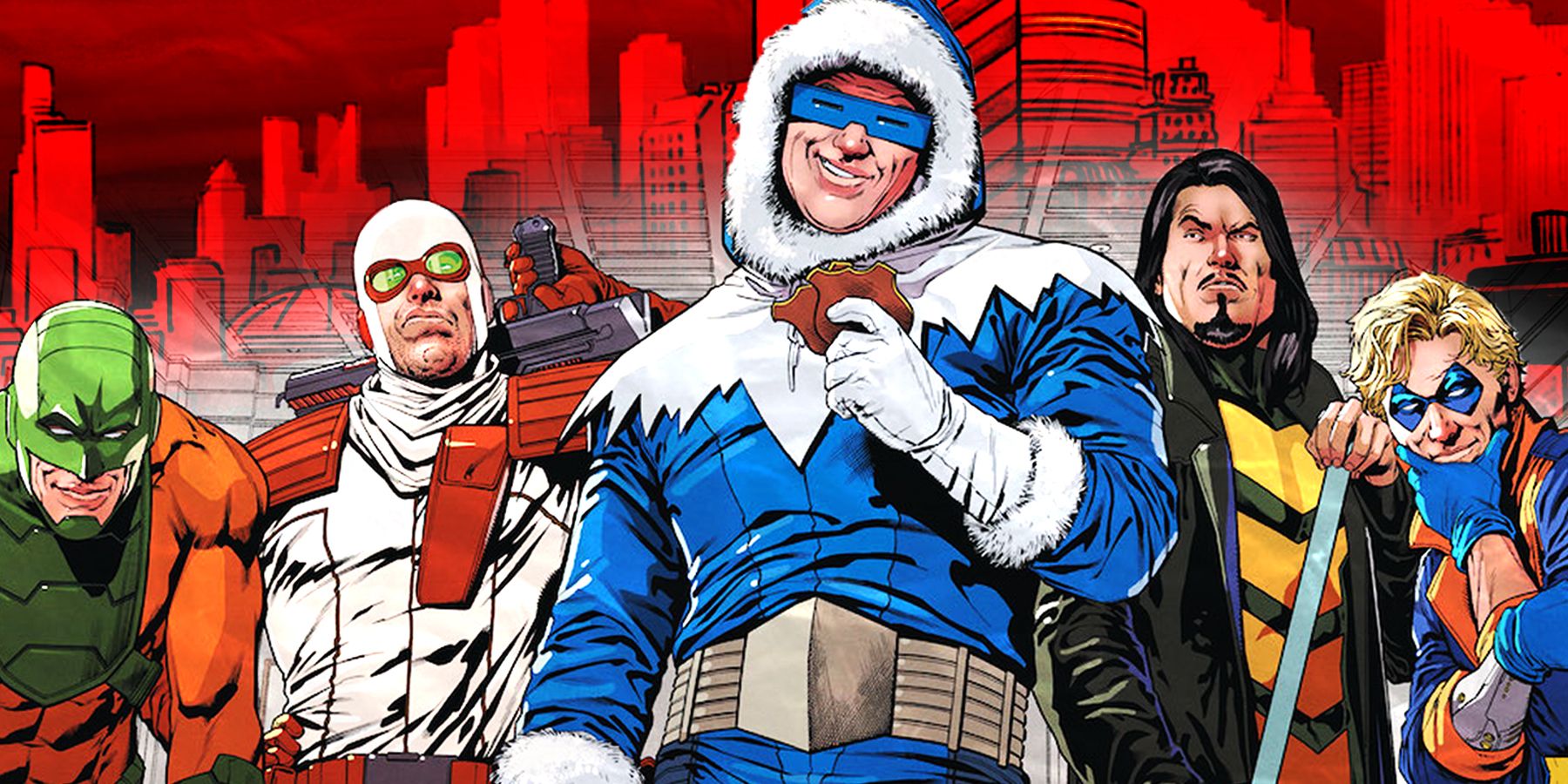
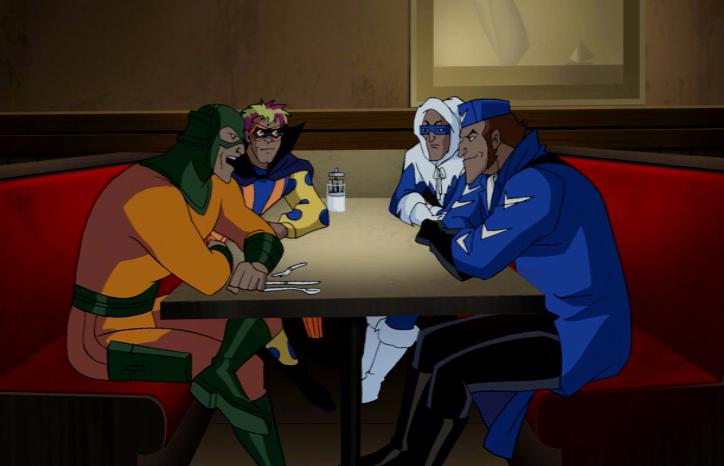
 1x Thank
1x Thank

